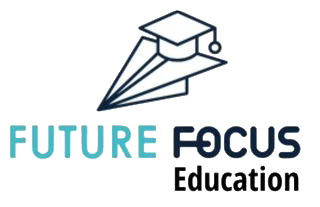Level B2 / English
- Home
- Level B2 / English
At the end of this level you will be able to:
By the end of this level, you will be able to describe historical events and important festivals in your country. You will learn how to compare two situations by clearly defending your personal opinion to reach a conclusion. You will learn how to compare different professions and work environments, outlining their advantages and disadvantages. You will learn how to develop skills to write well-structured essays with a rich vocabulary, formal or semi-formal letters addressed to a representative or supervisor, and motivational letters to effectively highlight personal qualities and values.
It is worth noting that this level also serves as preparation for international tests like IELTS and TOEFL.
This course:
Takes place in the classroom or online
In groups and individually
Morning and afternoon
Certificate at the end of the course
Program
● Focus: Overview of B2 level, understanding language needs.
● Activities: Diagnostic test (to assess current skills), setting goals.
● Skills: Speaking and listening focus on introductions.
● Focus: Review of past and present tenses (Past simple, Present perfect, Present continuous).
● Grammar: How and when to use different tenses.
● Skills: Grammar exercises, speaking practice.
● Focus: Common vocabulary related to daily life, routines, and habits.
● Activities: Flashcards, matching exercises, conversation practice.
● Focus: Modal verbs (can, must, should, etc.) and their different uses.
● Grammar: Rules and exceptions.
● Skills: Speaking and writing exercises.
● Focus: Listening for main ideas and specific information.
● Activity: Listening to an audio clip and answering questions.
● Skills: Listening comprehension.
● Focus: How to express opinions politely and confidently.
● Activity: Role-playing exercises.
● Skills: Speaking fluency.
● Focus: Job-related vocabulary, professions, workplace language.
● Activities: Discussions, matching job titles with descriptions.
● Focus: Understanding conditional sentences and their uses.
● Grammar: Exercises on if-clauses.
● Skills: Speaking and writing tasks using conditionals.
● Focus: Structure and tone for formal and informal emails/letters.
● Activity: Writing a formal email and an informal letter.
● Skills: Writing practice.
● Focus: Vocabulary related to travel, holidays, and tourism.
● Activities: Role-plays, travel brochures, discussions.
● Focus: Review of all content covered so far (grammar, vocabulary, speaking, listening).
● Activity: Written test and speaking assessment.
● Focus: Comparison structures (adjectives and adverbs).
● Grammar: Exercises and explanations.
● Skills: Speaking exercises with comparisons.
● Focus: Understanding and using phrasal verbs.
● Activity: Matching phrasal verbs with their meanings.
● Skills: Speaking and listening practice.
● Focus: Strategies for reading longer, more complex texts.
● Activity: Reading comprehension exercises.
● Skills: Skimming, scanning, and detailed reading.
● Focus: Health, exercise, and wellness vocabulary.
● Activity: Conversations about diet, health problems, exercise routines.
● Focus: Understanding and using reported speech (statements, questions, commands).
● Grammar: Direct vs indirect speech.
● Skills: Speaking practice.
● Focus: Listening for key information and taking notes.
● Activity: Listen to a short lecture or presentation and take notes.
● Skills: Note-taking, summarization.
● Focus: Writing reports and descriptions of trends using graphs and charts.
● Activity: Writing task based on a chart or graph.
● Skills: Writing practice.
● Focus: Vocabulary related to social issues like poverty, education, and equality.
● Activity: Group discussions and debates.
● Focus: Improving pronunciation, focusing on intonation and stress.
● Activity: Listening and mimicking native speakers.
● Skills: Speaking, pronunciation drills.
● Focus: Using conjunctions and linking words to show cause and effect.
● Grammar: Linking words (because, so, therefore, etc.).
● Skills: Writing and speaking exercises.
● Focus: Vocabulary related to technology, social media, and news.
● Activity: Role-play discussions on technology impacts.
● Focus: Writing essays expressing opinions, including introduction, body, and conclusion.
● Activity: Writing an opinion essay on a current topic.
● Skills: Writing practice.
● Focus: Expressing opinions in a debate format.
● Activity: Debate on a controversial topic.
● Skills: Speaking fluency, argumentation.
● Focus: Listening for specific information and detail.
● Activity: Listening to a podcast and answering detailed questions.
● Skills: Listening comprehension.
● Focus: Vocabulary related to culture, customs, and traditions.
● Activity: Group discussions on cultural differences and similarities.
● Focus: Using relative clauses to combine sentences.
● Grammar: Exercises on defining and non-defining relative clauses.
● Skills: Speaking and writing practice.
● Focus: Comprehensive review of all content covered in the course.
● Activity: Final test (written and speaking).

This course includes:
- 30 Leksione
- It takes place in the classroom or online
- Morning and afternoon
- Certificate at the end of the course
Do you have any questions?
Please contact us in the forms below and our staff will provide you with the necessary information.
